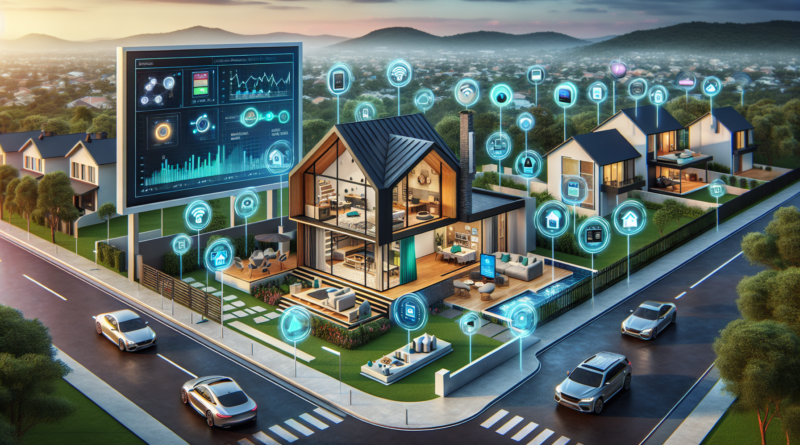The Impact of IT on Real Estate
Smart home technology refers to a variety of devices and systems that automate and enhance the functionality of a home. These include smart thermostats, lighting systems, security cameras, and voice-activated assistants. By integrating these technologies, homeowners can control various aspects of their home environment remotely, often through a smartphone app or a centralized hub.
How Smart Homes Increase Property Value
The integration of smart home technology can significantly increase the value of a property. Buyers are increasingly looking for homes that offer modern conveniences and energy efficiency. Smart thermostats, for example, can reduce energy bills by learning the homeowner’s schedule and adjusting the temperature accordingly. This not only appeals to eco-conscious buyers but also adds a layer of cost savings that can be attractive in the long term.
Security and Safety Enhancements
One of the most compelling aspects of smart home technology is its ability to enhance security and safety. Smart locks, video doorbells, and security cameras provide homeowners with peace of mind by allowing them to monitor their property in real-time. These features are particularly appealing to families and individuals who prioritize safety, thereby increasing the desirability and value of a home.
Smart Home Investment
Investing in smart home technology is not just about convenience; it’s a strategic move to increase your property’s market value. With the growing demand for tech-savvy homes, incorporating smart features can make your property stand out in a competitive real estate market.
Information technology plays a crucial role in modern real estate transactions. From virtual tours to online listings, technology has made it easier for buyers to find and evaluate properties. Smart home technology adds another layer to this by providing detailed insights into the home’s functionality and efficiency, making it easier for buyers to make informed decisions.
Challenges and Considerations
While smart home technology offers numerous benefits, there are also challenges to consider. Privacy concerns are at the forefront, as these devices often collect and store data. Homeowners must ensure that their systems are secure to prevent unauthorized access. Additionally, the rapid pace of technological advancement means that today’s cutting-edge devices may become obsolete quickly, requiring ongoing investment to maintain a home’s tech appeal.
Stay Ahead with Smart Tech
To remain competitive in the real estate market, consider integrating smart home technology into your property. Not only does it enhance the living experience, but it also increases your home’s value and appeal to potential buyers. Stay ahead of the curve by embracing the future of home automation.
The future of smart home technology is promising, with advancements in artificial intelligence and machine learning leading the way. Homes will become even more intuitive, with systems that can predict and respond to the needs of the occupants. This evolution will further enhance the appeal of smart homes, making them a staple in the real estate market.
Conclusion
Smart home technology is reshaping the real estate landscape by adding value, enhancing security, and providing convenience. As technology continues to evolve, its impact on the housing market will only grow, making it an essential consideration for homeowners and real estate professionals alike. Embrace the smart home revolution and unlock the potential of your property today.


